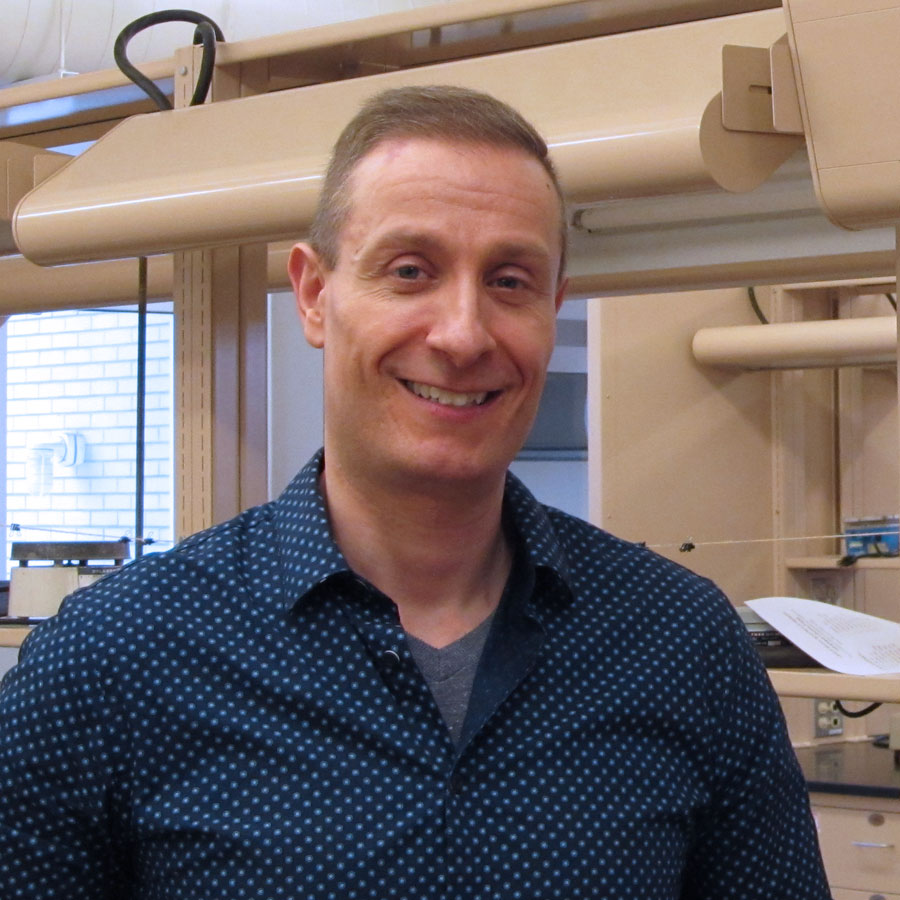
Leonard Vuocolo
Associate Teaching Professor, Chemistry
- Doherty Hall 2114
- 412-268-7033
Education
Ph.D. in Chemistry, Carnegie Mellon University, 2000Projects
Areas of Specialty
Effective Use of Technology/Software at the introductory level; contextual approaches to general chemistry; implementation of green chemistry and bioinorganic chemistry in the undergraduate curriculum; interdisciplinary experiments between chemistry and engineering; interdisciplinary courses between chemistry and non-science and non-engineering programs, peer learning techniques, advising effective recitation instruction, academic and career advising.
Educational Interests
My introductory courses focus on a “concepts first, numbers next” approach to learning. I integrate activities and software that encourage students to apply concepts to new and/or practical situations and to derive new concepts from those they currently know. I have worked with our Eberly Center for Teaching Excellence on research to measure technology’s impact on learning gains and retention.
The 09-111 Nanolegos course introduces “problem- or context-first" before applicable chemical concepts on an as-needed basis. It is structured around phenomena relevant to modern society, research, and technology rather than the conceptual tools (i.e. systems- or application-, rather than content-driven). I am interested in taking this approach to our mainstream introductory lecture and laboratory courses.
Recently I have been participating with the Eberly Center in a research project implementing specifications grading, which de-emphasizes traditional, points-based grades. In this grading of assessments, students receive “satisfactory” (meaning they have met all the expectations for that assignment) or “not satisfactory”. Final course grades are then based on numbers of “satisfactories” students get across assessment categories. We are interested in determining whether a specifications grading system leads to improved outcomes in student learning/performance and attitudes/perceptions.
I am also interesting in offering non-majors courses involving chemistry in fitness and the use of chemical analysis in quality control and the categorization of various foods of Italian culture.
Appointments
| Years | Position |
|---|---|
| 2017–present | Associate Teaching Professor of Chemistry, Carnegie Mellon University |
| 2009–2017 | Assistant Teaching Professor of Chemistry, Carnegie Mellon University |
| 2005–2009 | Special Lecturer in Chemistry, Carnegie Mellon University |
| 2000–2005 | Assistant Professor of Chemistry, Allegheny College |
Awards and Distinctions
| Years | Award |
|---|---|
| October 2007 and 2009 | Co-recipient of the Carnegie Mellon Panhellenic Role Model Award. |
| June 1999 | Co-recipient of the 1999 Presidential Green Chemistry Challenge Award (In recognition of contributions made to the development of Professor Terrence Collins’ “TAML™ Catalytic Oxidant Activators: General Activation of Hydrogen Peroxide for Green Oxidation Technologies”) |
| April 1999 | Carnegie Mellon University Graduate Student Teaching Award |
| April 1998 | Mellon College of Science Graduate Student Teaching Award |
| April 1995 | Department of Chemistry Graduate Student Teaching Award |
Teaching Interests
| Course number | Course title |
|---|---|
| 09-101 | Introduction to Experimental Chemistry |
| 09-105 | Introduction to Modern Chemistry I |
| 09-106 | Modern Chemistry II |
| 09-111 | Nanolegos: Chemical Building Blocks |
| 09-202 | Undergraduate Seminar II: Safety and Environmental Issues for Chemists |
| 09-221 | Laboratory I: Introduction to Chemical Analysis |